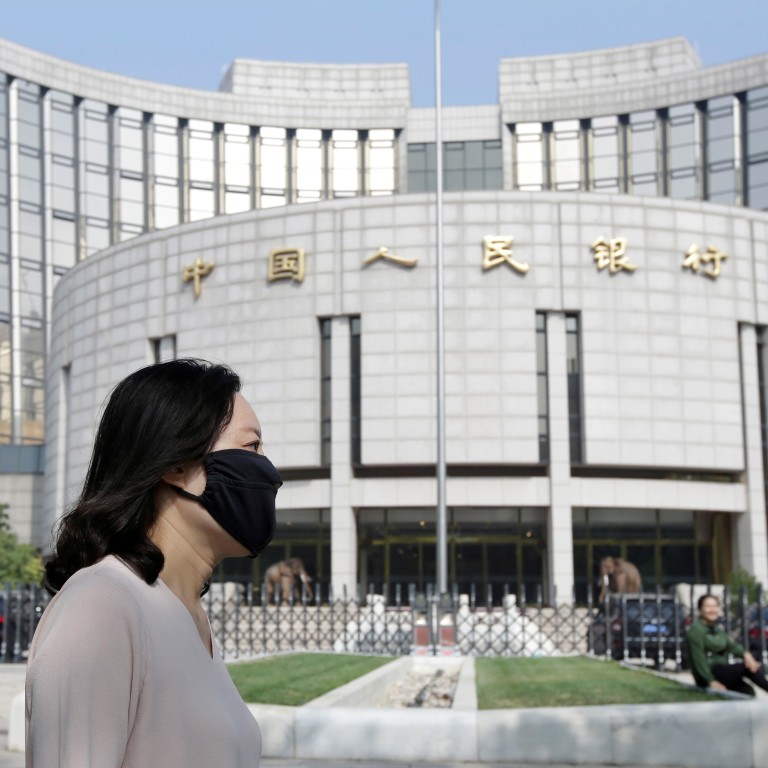
China has done its part to rectify global imbalances. It’s time for the US to step up
- Economist Jack Gao argues that China has rolled out social safety nets and eased restrictions to turn more of its savers into spenders
- But Washington’s tax cuts and outdated views on trade are worsening the country’s external imbalances
The traditional wisdom about the global economic imbalance is that the United States has overspent while China has saved too much and that this imbalance was a prime cause for the global financial crisis a decade earlier. A decade later, China’s part of the excess has been largely fixed while the US part of the imbalance remains.
China’s external position, measured by its current account balance, is “in line with fundamentals and desired policies”, according to the latest external sector report from the International Monetary Fund (IMF) published in August. While China’s current account surplus was larger than 10 per cent of its gross domestic product in 2007, it dropped to only 0.4 per cent in 2018. In other words, China, in a broad view, no longer has an imbalance issue.
This is in stark contrast to the days when China was the target of accusations of causing global economic imbalances. In 2005, then US Federal Reserve chairman Ben Bernanke linked the so-called global saving glut with the US current account deficit, and institutions like the IMF, the Group of Seven and the Organisation for Economic Cooperation and Development joined a chorus urging China to correct the imbalance. They declared that China needed to free the yuan exchange rate and to change its domestic policies.
Not without resistance, China has largely implemented the suggested policy changes, albeit in line with its own domestic priorities. China’s current account surplus has shrunk dramatically this decade and the country’s economy has shifted from a model based on investment and exports to one driven by consumer spending.
While the older generation of Chinese are known as staunch savers, new Chinese generations are not shy about amassing personal debt through mortgage loans and credit cards
While the older generation of Chinese are known as staunch savers, new Chinese generations are not shy about amassing personal debt through mortgage loans and credit cards. The savings total in the Chinese economy has fallen thanks to reforms in the social safety net and job security, giving consumers more confidence to spend.
Further, as the domestic market expanded and restrictions were relaxed, rising imports of goods and services and more trips abroad all resulted in a more balanced economic relationship between China and the rest of the world.
US President Donald Trump, however, is blind to the fundamental change in the overall Chinese economy and started a trade war partly based upon an outdated notion of the bilateral trade imbalance.
The economic illiteracy of Washington laid bare in its recent move of labelling China as a currency manipulator when Beijing was actually allowing the market to do the job. This time, even the IMF has publicly rejected Washington’s allegations over yuan.
While Beijing can declare that it has done its part to rebalancing its economy, the US cannot.
It’s common sense that a prime cause of the US trade deficit lies in the country’s tendency for high spending and low saving – if US didn’t buy so much from China, it would buy from other countries.
Economic policies rolled out by the Trump administration will only make matters worse. Tax cuts last year boosted spending in America, attracted capital inflows, and resulted in a stronger dollar, all of which work to worsen the US current account deficit. Combined with the new budget deal that is poised to expand the US budget deficit by close to US$2 trillion over the next decade, the US certainly won’t be able to reverse its trade imbalance any time soon.
Complicating these problems, Trump has so far focused his energy on slapping tariffs on China and ordering companies to shift production back to the US. However, the immediate result has been to widen the deficits with countries other than China, create higher costs for US consumers and companies, and perpetuate a stubbornly high overall deficit.
National economic well-being depends mainly on domestic policies, not ordering others around. While China has made impressive progress on rebalancing its own economy and alleviating the pressure on global imbalances, the US has yet to make its own necessary adjustments.
Jack Gao is a New York-based economist with the Institute for New Economic Thinking

